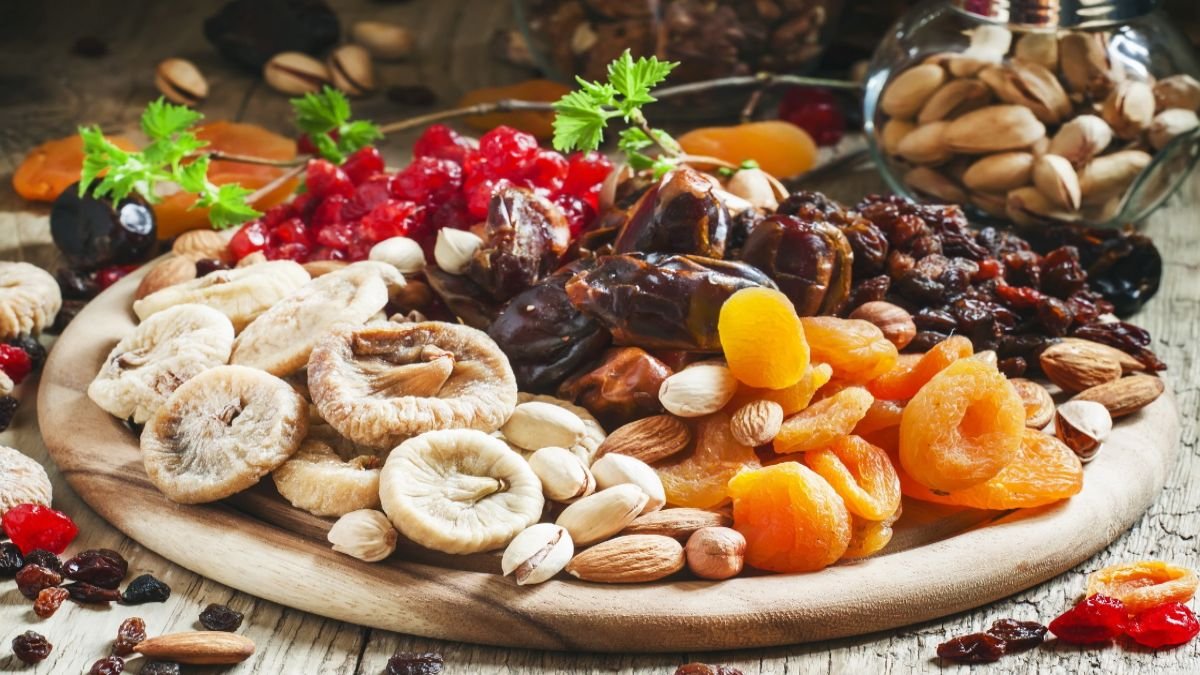Overview:
Gaining weight can be a challenge for vegetarians, especially when trying to maintain a balanced diet that includes all essential nutrients.
Unlike diets that include animal products, vegetarian diets often require more strategic planning to ensure adequate caloric intake.
This blog will explore the top 15 foods for Vegetarians to Gain weight that are not only high in calories but also packed with essential nutrients, making them ideal for vegetarians looking to gain weight healthily.
Table of Contents
Understanding Weight Gain for Vegetarians
When aiming to gain weight, it’s crucial to focus on calorie-dense foods that provide a balance of macronutrients—carbohydrates, proteins, and fats.
Foods rich in healthy fats are particularly beneficial, as they contain more calories per gram compared to proteins and carbohydrates.
Incorporating these foods into your daily meals can help you achieve your weight gain goals while ensuring you receive the necessary vitamins and minerals.
Top 15 Foods for Weight Gain Include
1. Avocado
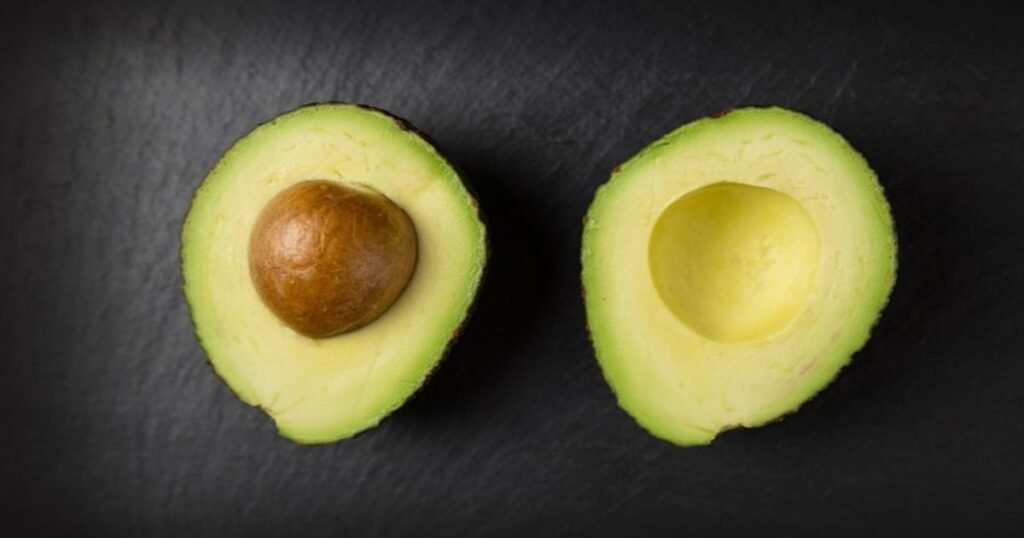
- Calories: 322 per medium avocado (201g)
- Nutritional Value: 29g fat, 17g carbs, 14g fiber, 4g protein
Avocados are a powerhouse of healthy fats and calories. They can be easily added to smoothies, salads, or eaten on their own. Their high fat content helps increase overall caloric intake without compromising nutrition.
2. Nuts and Nut Butters
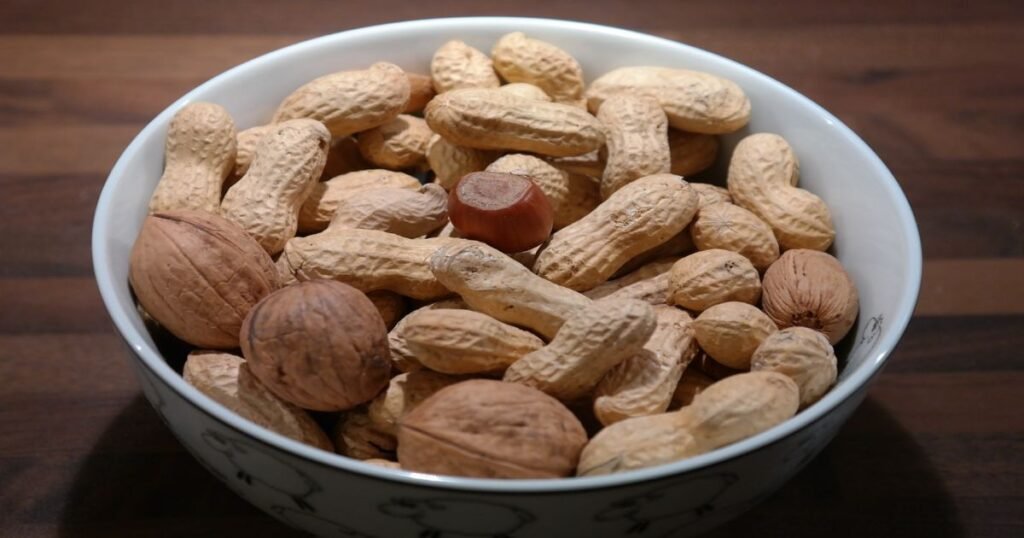
- Calories: Approximately 600-700 per 100g (varies by type)
- Nutritional Value: High in healthy fats, protein, and fiber
Nuts such as almonds, walnuts, and cashews are calorie-dense and provide essential fatty acids. Nut butter like peanut butter or almond butter can be spread on toast or added to smoothies for an extra calorie boost.
3. Quinoa
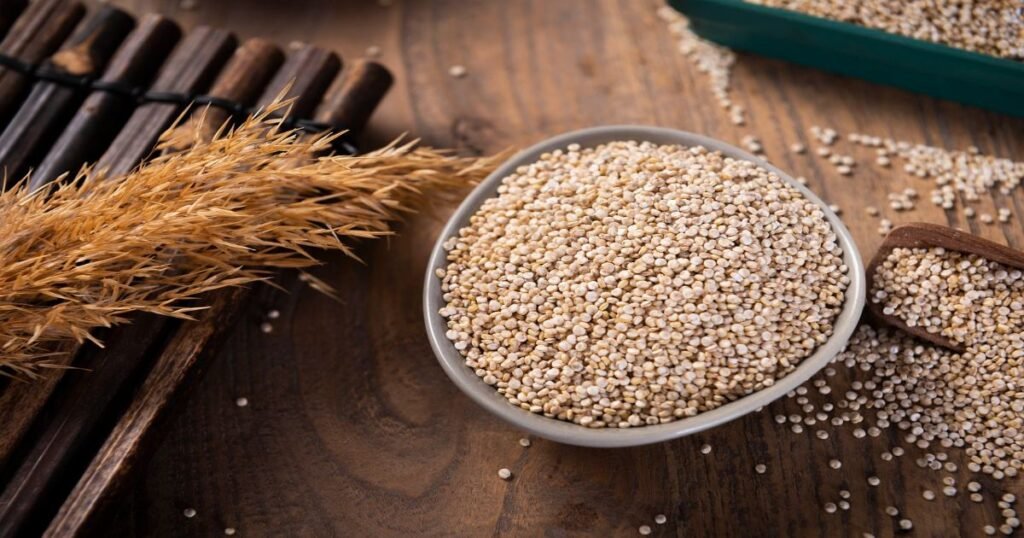
- Calories: 222 per cup cooked (185g)
- Nutritional Value: 8g protein, 5g fiber
Quinoa is a complete protein source containing all nine essential amino acids. It’s versatile and can be used in salads or as a side dish.
4. Lentils
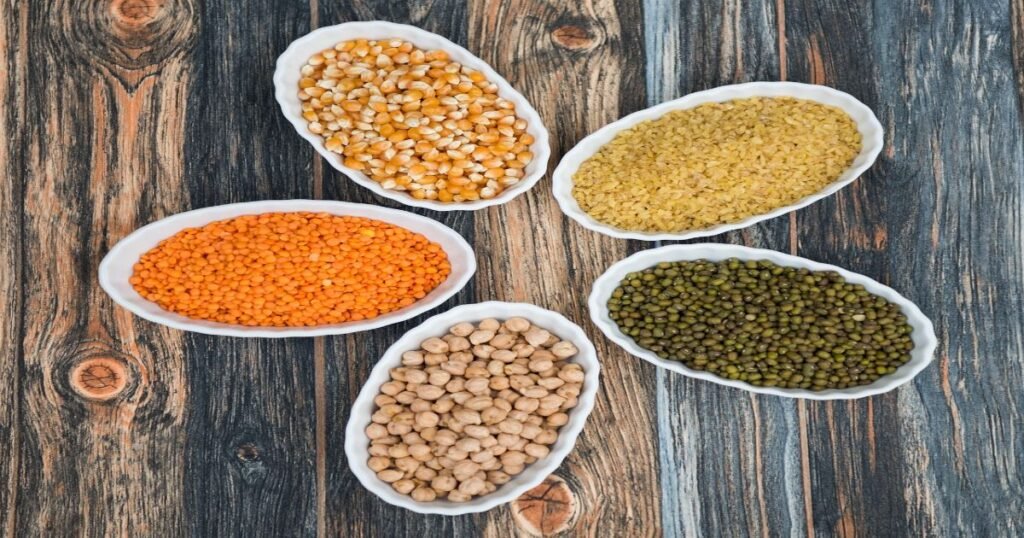
- Calories: 230 per cup cooked (198g)
- Nutritional Value: 18g protein, 15g fiber
Lentils are an excellent source of plant-based protein and fiber. They can be incorporated into soups, stews, or salads to enhance caloric intake.
5. Dark Chocolate

- Calories: 155 per ounce (28g)
- Nutritional Value: Rich in antioxidants
Dark chocolate is not only delicious but also calorie-dense. It can be enjoyed as a snack or added to smoothies for a sweet treat.
Also Read: 7 Health Benefits Of Dark Chocolate
6. Sweet Potatoes

- Calories: 180 per cup cooked (200g)
- Nutritional Value: High in vitamins A and C
Sweet potatoes are rich in carbohydrates and fiber. They can be roasted, mashed, or added to various dishes for extra calories.
7. Full-fat Greek Yogurt
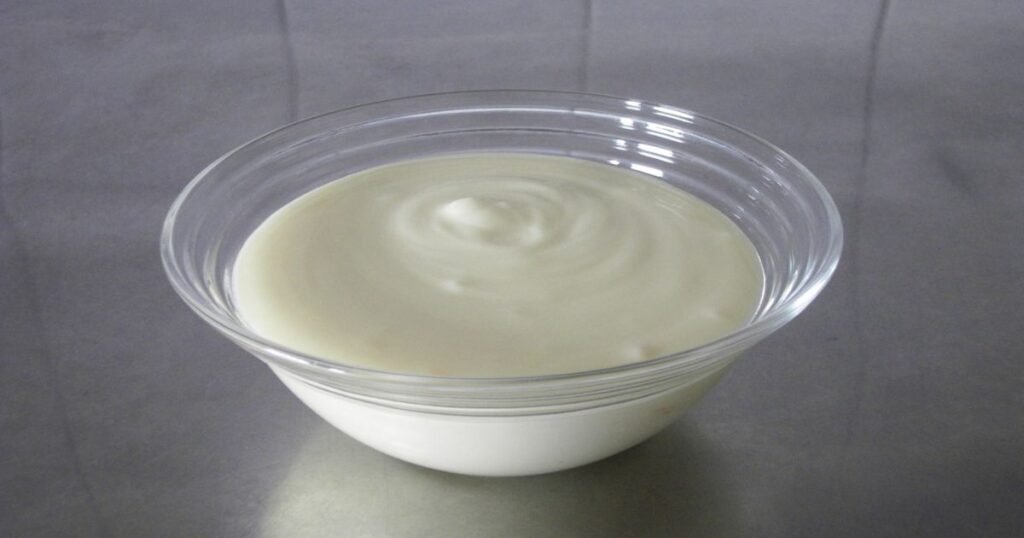
- Calories: 220 per cup (245g)
- Nutritional Value: High in protein and probiotics
Full-fat Greek yogurt is an excellent source of protein and healthy fats. It can be consumed as a snack or used in smoothies and desserts.
8. Coconut Milk
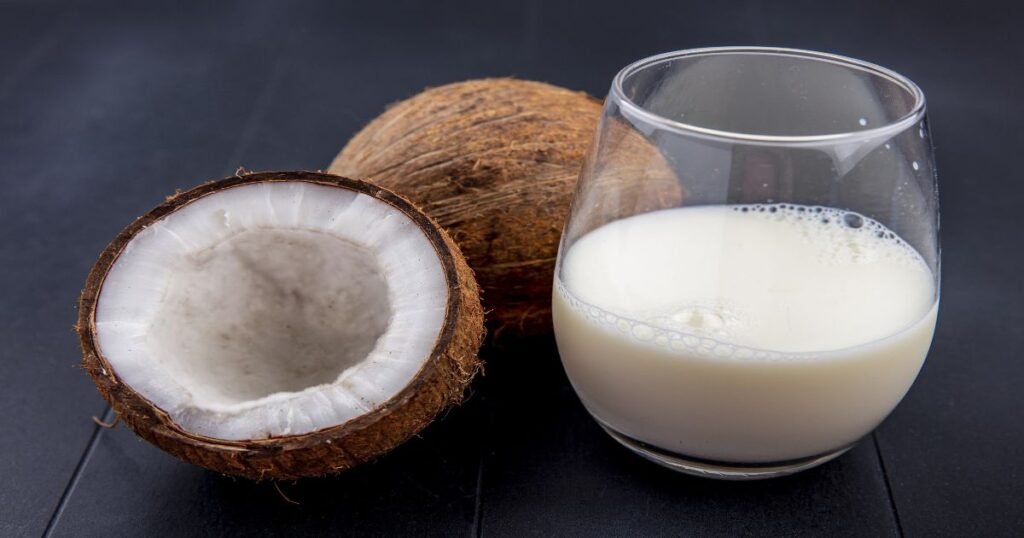
- Calories: 552 per cup (240ml)
- Nutritional Value: High in saturated fats
Coconut milk is calorie-rich and can be used in curries, soups, or smoothies to add creaminess and flavor.
9. Oats
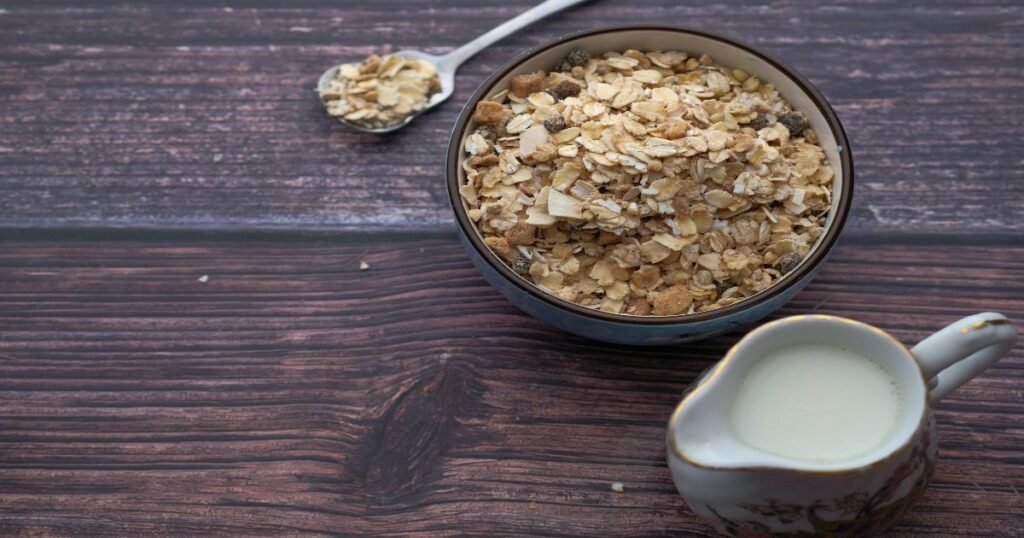
- Calories: 158 per cup cooked (234g)
- Nutritional Value: High in fiber
Oats are a great source of complex carbohydrates and fiber. They can be prepared as oatmeal or used in baked goods for added calories.
10. Dried Fruits
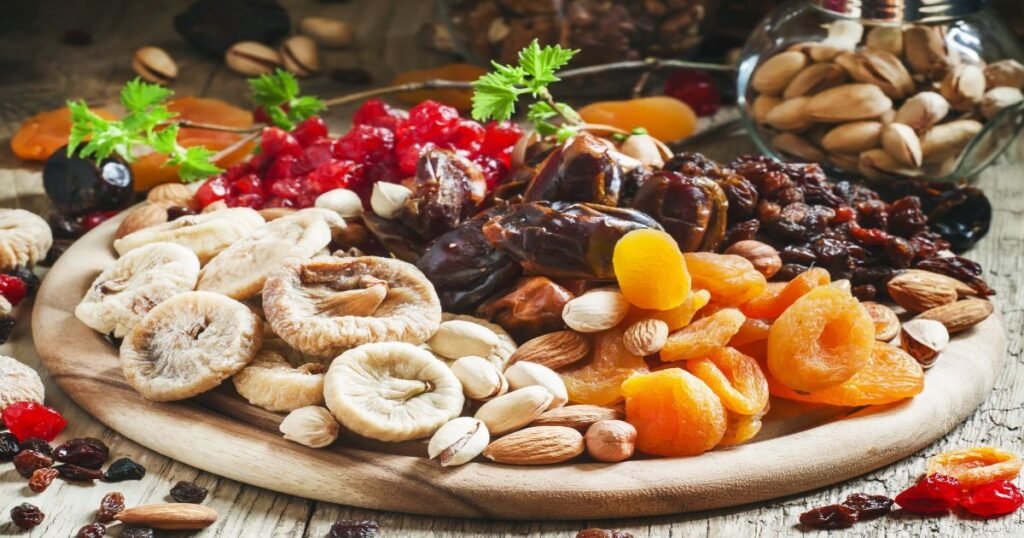
- Calories: Approximately 200 per half-cup (75g) (varies by type)
- Nutritional Value: High in natural sugars and fiber
Dried fruits like dates, figs, and raisins are energy-dense snacks that provide quick calories. They can be added to trail mixes or eaten on their own.
11. Tofu
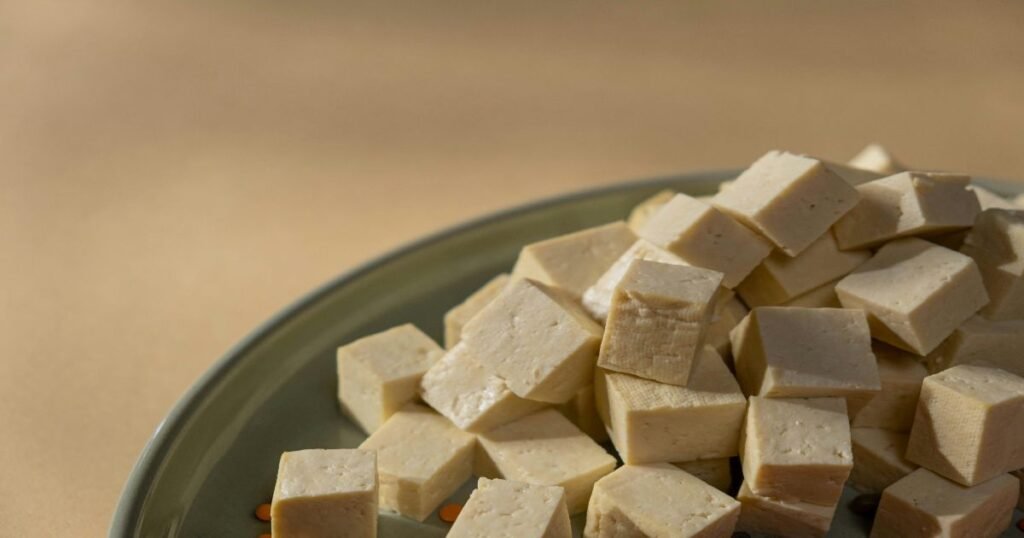
- Calories: 144 per cup (252g)
- Nutritional Value: High in protein
Tofu is an excellent source of plant-based protein that can be incorporated into stir-fries, salads, or sandwiches.
12. Chickpeas
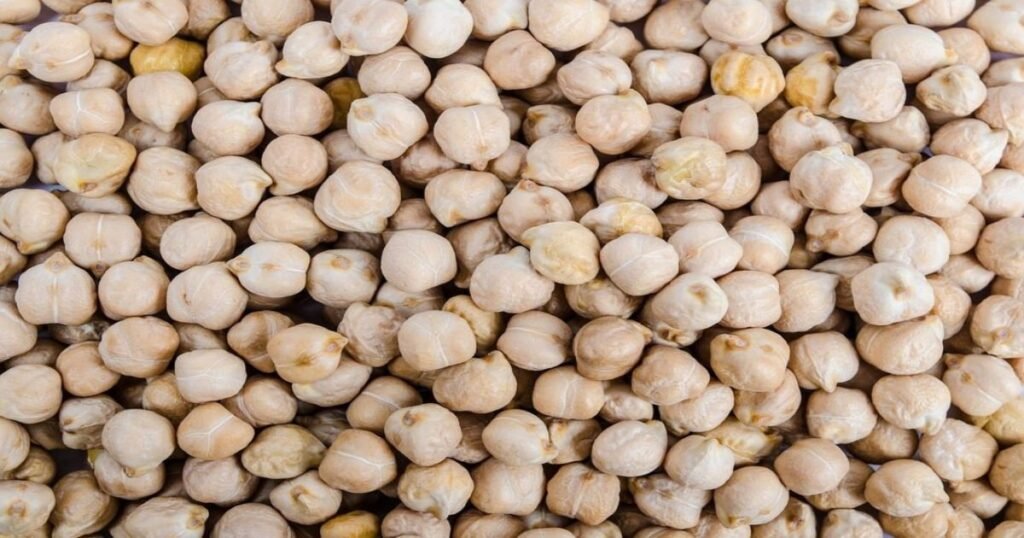
- Calories: 269 per cup cooked (240g)
- Nutritional Value: High in protein and fiber
Chickpeas are versatile legumes that can be used in salads or blended into hummus for a nutritious dip.
13. Olive Oil

- Calories: 119 per tablespoon (15ml)
- Nutritional Value: Rich in monounsaturated fats
Olive oil is an excellent source of healthy fats that can be drizzled over salads or used for cooking to increase caloric intake effortlessly.
14. Granola
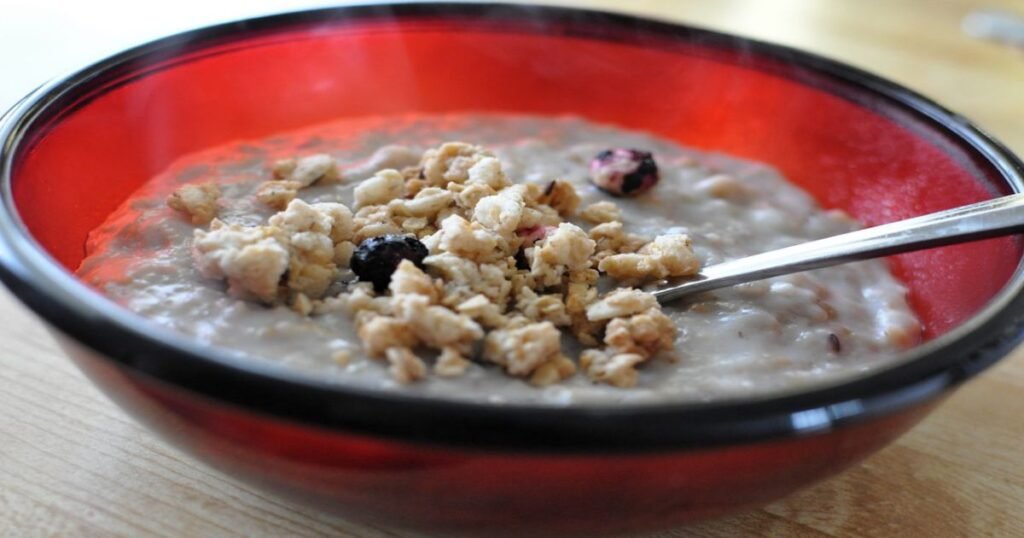
- Calories: Approximately 300 per half-cup (60g)
- Nutritional Value: High in fiber and healthy fats (varies by brand)
Granola is often packed with oats, nuts, seeds, and dried fruits—making it a calorie-dense breakfast option when paired with yogurt or milk.
15. Whole Wheat Pasta
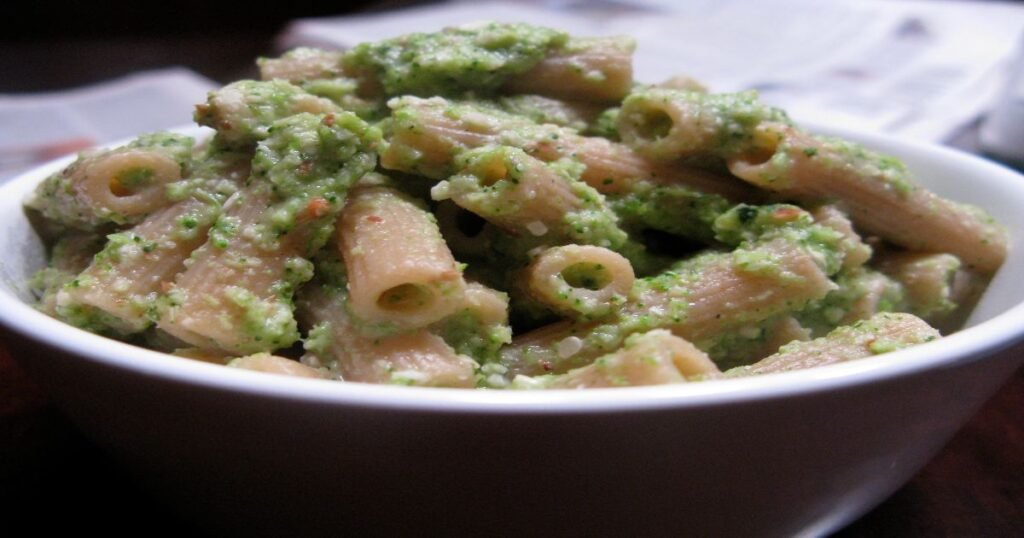
- Calories: 174 per cup cooked (140g)
- Nutritional Value: High in carbohydrates
Whole wheat pasta provides complex carbohydrates that fuel energy levels while contributing significantly to caloric intake when served with sauces or vegetables.
Conclusion
Incorporating these top 15 high-calorie vegetarian foods into your diet can effectively support your weight gain goals while ensuring you receive essential nutrients needed for overall health.
By focusing on nutrient-dense options like avocados, nuts, legumes, whole grains, and healthy oils, you can create satisfying meals that promote healthy weight gain without sacrificing nutrition.
FAQs
Q1: How many calories should I consume daily to gain weight?
A1: To gain weight healthily, aim for a caloric surplus of about 300–500 calories above your maintenance level each day. This varies based on individual factors such as age, gender, activity level, and metabolism.
Q2: Can I gain weight on a vegetarian diet?
A2: Yes! With careful planning and the inclusion of high-calorie foods like those listed above, vegetarians can successfully gain weight while maintaining a balanced diet rich in nutrients.
Q3: Are there any specific meal ideas for gaining weight?
A3:
- Breakfast could include oatmeal topped with nut butter and banana.
- Lunch might consist of quinoa salad with chickpeas and avocado.
- Dinner could feature whole wheat pasta tossed with olive oil and vegetables.
- Snacks could include nuts or Greek yogurt mixed with granola.
Q4: What are some snacks I can eat to gain weight?
A4: Healthy snacks that can help with weight gain include:
- Nut butter on whole grain toast or rice cakes.
- Trail mix made with nuts, seeds, and dried fruits.
- Smoothies made with full-fat yogurt, fruits, and oats.
- Cheese and whole grain crackers.
Q5: Is it possible to gain weight too quickly?
A5: Yes, gaining weight too quickly can lead to unwanted fat gain rather than muscle. Aiming for a gradual increase of about 1-2 pounds per week is generally considered safe and effective for healthy weight gain.
Q6: Should I focus on protein intake when trying to gain weight?
A6: While protein is essential for muscle growth and repair, it’s important to maintain a balanced diet that includes carbohydrates and healthy fats as well. Aim for a protein intake of around 1.2 to 2.0 grams per kilogram of body weight, depending on your activity level.
Q7: Can I gain weight without consuming dairy?
A7: Absolutely! Many plant-based foods are rich in calories and nutrients. Options like nut milks, tofu, legumes, avocados, and whole grains can help you gain weight without dairy.
Q8: How can I ensure I’m gaining muscle instead of fat?
A8: To gain muscle rather than fat, combine a caloric surplus with strength training exercises. Focus on consuming adequate protein and engaging in resistance training at least 2-3 times per week.
Q9: Are there any vegetarian protein powders that can help with weight gain?
A9: Yes, there are several vegetarian protein powders available, such as pea protein, hemp protein, and brown rice protein. These can be added to smoothies or mixed into oatmeal for an extra protein boost.
Q10: How often should I eat when trying to gain weight?
A10: Eating more frequently can help increase your caloric intake. Aim for 5-6 smaller meals or snacks throughout the day rather than just 2-3 large meals.
Q11: Can drinking smoothies help me gain weight?
A11: Yes! Smoothies can be an effective way to increase calorie intake. Use ingredients like full-fat yogurt, nut butter, bananas, oats, and even avocado to create calorie-dense smoothies.
Q12: Should I avoid processed foods while trying to gain weight?
A12: While it’s best to focus on whole foods for overall health, incorporating some minimally processed calorie-dense foods occasionally can help you reach your caloric goals. Just be mindful of the nutritional quality.
Q13: How do I know if I’m gaining weight healthily?
A13: Monitor your progress by tracking your weight weekly and assessing changes in body composition. If you’re gaining gradually (1-2 pounds per week) and feeling energetic without excessive fat gain, you’re likely on the right track.
Q14: Are there any specific vitamins or minerals I should focus on while gaining weight?
A14: Ensure you’re getting enough vitamins and minerals by eating a variety of foods. Pay special attention to calcium (for bone health), iron (for energy), and B vitamins (for metabolism). A multivitamin may also be helpful if you’re concerned about deficiencies.
Q15: Can stress affect my ability to gain weight?
A15: Yes, stress can impact appetite and metabolism. High-stress levels may lead to decreased hunger or unhealthy eating habits. Practicing stress management techniques like mindfulness or exercise can help maintain a healthy relationship with food during your weight gain journey.
By focusing on these strategies and incorporating the recommended foods into your daily routine, you will find it easier to achieve your weight gain goals while enjoying delicious vegetarian meals!

